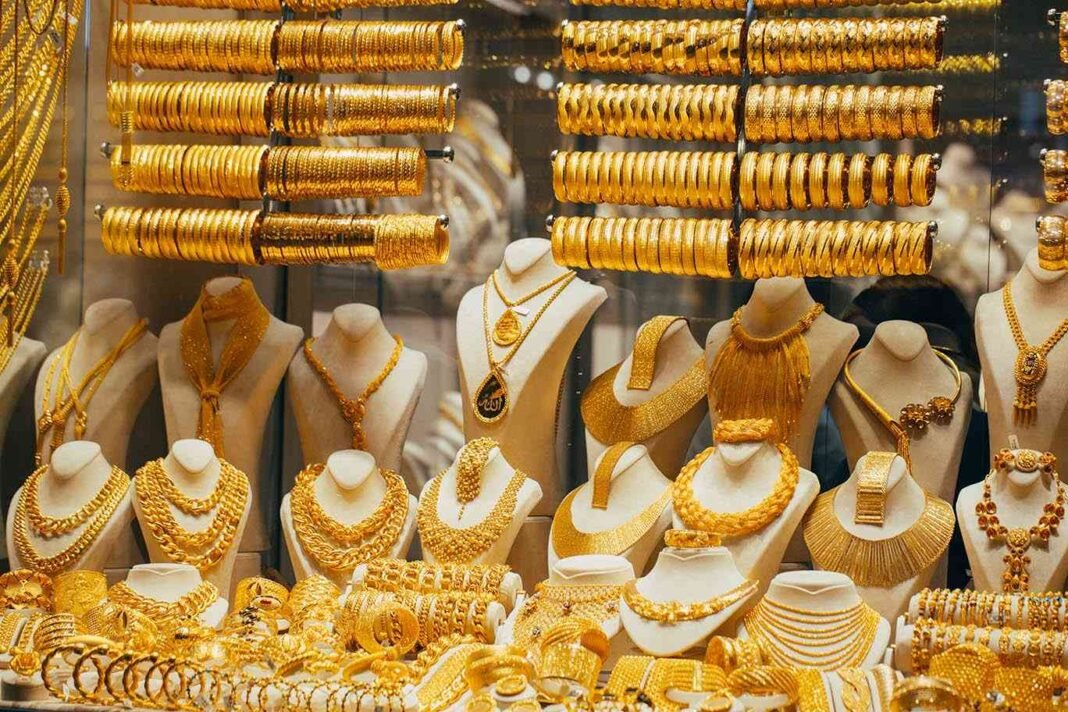Gold prices rise in Baghdad has become the key trend in Iraq’s jewelry markets. While the capital saw a noticeable increase, prices in Erbil stayed steady. Buyers and sellers alike paid close attention to every slight movement in the market.
In Baghdad’s bustling al-Nahr Street, gold activity grew stronger. The price of one mithqal (4.25 grams) of 21-carat foreign gold, including Gulf, Turkish, and European types, climbed to 659,000 IQD. Just a day earlier, it stood at 657,000 IQD. Meanwhile, the buying price reached 655,000 IQD, signaling a growing demand. This confirms how gold prices rise in Baghdad in response to trading flows.
On the other hand, Iraqi 21-carat gold showed a steady but lower rate. Sellers offered it at 639,000 IQD, while buyers paid around 635,000 IQD. Jewelry shop prices showed slight variations. Foreign 21-carat gold sold for 660,000 to 670,000 IQD per mithqal. Iraqi gold prices in these stores ranged between 640,000 and 650,000 IQD.
Moving to the northern region, the situation looked more stable. In Erbil, prices didn’t fluctuate much. Traders sold 22-carat gold at 683,000 IQD. For 21-carat, the rate stood firm at 652,000 IQD. Meanwhile, 18-carat gold held its ground at 558,000 IQD.
Though Erbil remained calm, Baghdad showed that gold prices rise in Baghdad continues to be a talking point. Several market experts believe the increase is driven by changes in demand, slight currency shifts, and regional competition. Consumers in the capital seem more eager to invest in gold, especially in foreign styles.
Goldsmiths in Baghdad noted that more buyers appeared this week. This rise in foot traffic may explain the slight upward shift in prices. Even with modest increases, the city’s markets still offer competitive rates for gold lovers and investors.
While Erbil maintained stable trading patterns, some traders expect minor price shifts soon. However, without large-scale economic changes, those shifts may remain small. This contrast between Baghdad and Erbil continues to define regional differences in Iraq’s precious metals sector.
In summary, gold prices rise in Baghdad remains a repeated trend in the capital, showing strong local interest and market activity. Erbil, by comparison, keeps a more predictable pace. The Iraqi gold market keeps evolving, shaped by local demands and trading behaviors.


